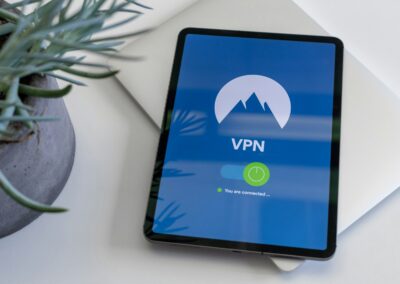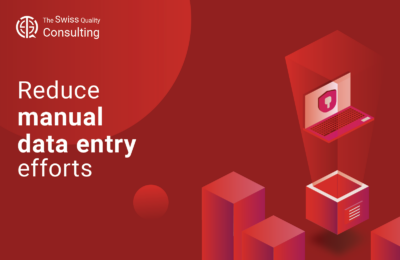Understanding the Benefits of Zero Trust Security Models
The Evolution of Cybersecurity: From Perimeter Defense to Zero Trust
the adoption of Zero Trust security models is emerging as a more effective approach to mitigate the impact of data breaches and minimize potential damage.
The Zero Trust model operates on the principle of “never trust, always verify.” Unlike traditional security models that assume everything inside the network is safe, Zero Trust requires continuous verification of every user and device attempting to access resources. This approach significantly reduces the risk of unauthorized access and limits the potential for lateral movement within the network in the event of a breach.
For business executives, mid-level managers, and entrepreneurs, understanding and implementing Zero Trust security models is crucial. It ensures that every access request is authenticated, authorized, and encrypted in real-time, providing a robust defense against increasingly sophisticated cyber attacks. This shift towards Zero Trust is particularly relevant for organizations in technologically advanced regions like Riyadh and Dubai, where cyber threats are constantly evolving.
Implementing Zero Trust Security: Key Components and Strategies
Adopting a Zero Trust security model involves several critical components and strategies. First, organizations must establish robust identity and access management (IAM) systems. This includes multi-factor authentication (MFA) and single sign-on (SSO) solutions to verify the identity of users and devices accessing the network. By implementing these measures, businesses can ensure that only authorized users gain access to sensitive information.
Another essential component of Zero Trust is network segmentation. By dividing the network into smaller, isolated segments, organizations can limit the spread of potential breaches. In the event of a security incident, this segmentation prevents attackers from moving laterally across the network, thereby minimizing the potential damage. Advanced network monitoring and analytics tools are also crucial for detecting and responding to suspicious activities in real-time.
Furthermore, continuous security awareness training and executive coaching services are vital for fostering a culture of cybersecurity within the organization. Educating employees about the importance of Zero Trust principles and best practices helps reduce human errors that could lead to data breaches. Executive coaching can equip leaders with the skills to drive the adoption of Zero Trust security models and ensure effective implementation across the organization.
Case Study: Zero Trust Security in Action
A leading healthcare provider in Dubai recently implemented a Zero Trust security model to enhance its cybersecurity posture. The organization had previously experienced several data breaches that compromised patient records and disrupted operations. By adopting Zero Trust, the healthcare provider aimed to improve its threat detection capabilities and reduce the risk of future breaches.
The Zero Trust security model employed by the healthcare provider included robust IAM systems, network segmentation, and advanced threat detection tools. The organization also conducted regular security awareness training sessions to educate employees about the importance of cybersecurity. As a result, the healthcare provider significantly improved its security posture and reduced the number of successful cyber attacks.
This case study highlights the effectiveness of Zero Trust security models in protecting organizations against evolving cyber threats. By leveraging advanced technologies and implementing robust security measures, businesses in regions like Dubai can enhance their cyber resilience and safeguard their operations from sophisticated attacks.
Strategic Benefits of Adopting Zero Trust Security Models
Enhancing Data Protection and Compliance
One of the primary benefits of Zero Trust security models is their ability to enhance data protection and ensure compliance with regulatory requirements. By implementing continuous verification and strict access controls, organizations can better protect sensitive data from unauthorized access. This is particularly important for businesses in Saudi Arabia, UAE, Riyadh, and Dubai, where data protection regulations are becoming increasingly stringent.
Zero Trust security models also provide greater visibility into network activities, enabling organizations to detect and respond to potential threats more quickly. This enhanced visibility is crucial for maintaining compliance with industry standards and regulatory requirements. For example, healthcare providers must comply with regulations such as the Health Insurance Portability and Accountability Act (HIPAA), while financial institutions must adhere to the Payment Card Industry Data Security Standard (PCI DSS).
By adopting Zero Trust security models, organizations can demonstrate their commitment to data protection and compliance, which can enhance their reputation and build trust with customers and stakeholders. Executive coaching services can support leaders in navigating the complexities of regulatory compliance and ensuring that their security strategies align with industry standards.
Reducing the Impact of Data Breaches
Zero Trust security models are designed to reduce the impact of data breaches by limiting the potential damage that can occur in the event of a security incident. By continuously verifying every access request and implementing strict access controls, organizations can prevent unauthorized users from gaining access to sensitive information. This approach minimizes the risk of data exfiltration and helps contain breaches before they can cause significant harm.
In addition, Zero Trust security models employ advanced threat detection and response capabilities to identify and mitigate potential threats in real-time. This proactive approach allows organizations to respond to security incidents more quickly and effectively, reducing the overall impact of data breaches. For businesses in technologically advanced regions like Riyadh and Dubai, where cyber threats are constantly evolving, the ability to detect and respond to threats in real-time is essential for maintaining cyber resilience.
Executive coaching services can help leaders develop the skills and knowledge needed to implement and manage Zero Trust security models effectively. By fostering a culture of continuous improvement and collaboration, organizations can enhance their cyber resilience and achieve long-term success in the digital age.
Conclusion: The Future of Zero Trust Security Models
As cyber threats continue to evolve, the adoption of Zero Trust security models will become increasingly important for organizations in Saudi Arabia, UAE, Riyadh, and Dubai. By leveraging advanced technologies such as AI, Blockchain, and Generative AI, businesses can create a comprehensive and adaptive cybersecurity framework that provides robust protection against sophisticated attacks.
Zero Trust security models offer numerous benefits, including enhanced data protection, regulatory compliance, and reduced impact of data breaches. Executive coaching services can play a vital role in supporting leaders as they navigate the complexities of implementing and managing Zero Trust security strategies. By fostering a culture of cybersecurity awareness and continuous improvement, organizations can achieve long-term success and maintain a robust security posture in the digital age.
#ZeroTrustSecurity #DataBreaches #Cybersecurity #RiskManagement #SaudiArabia #UAE #Riyadh #Dubai #ArtificialIntelligence #Blockchain #TheMetaverse #ExecutiveCoaching #GenerativeAI #ModernTechnology #BusinessSuccess #LeadershipSkills #ManagementSkills #ProjectManagement























